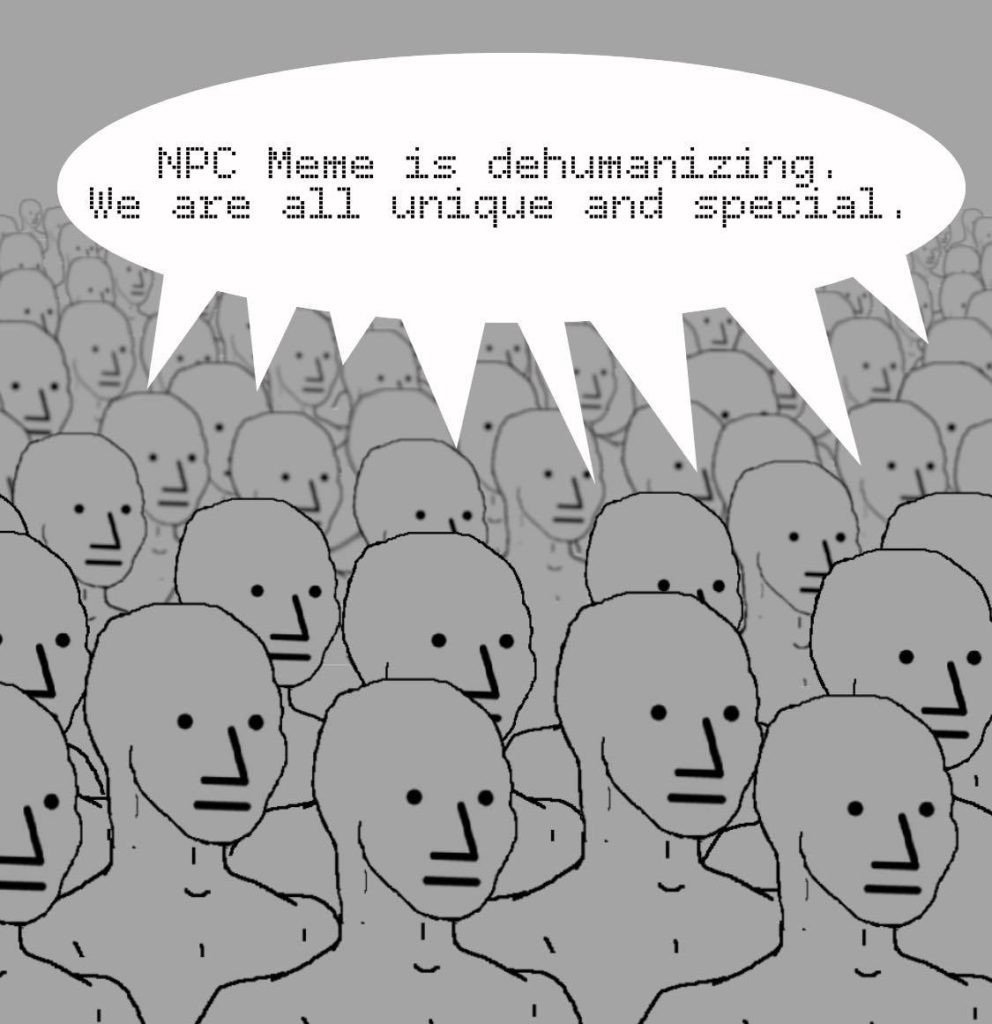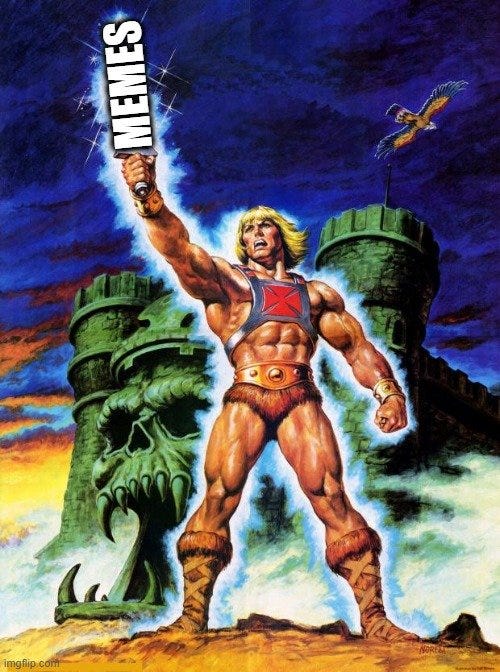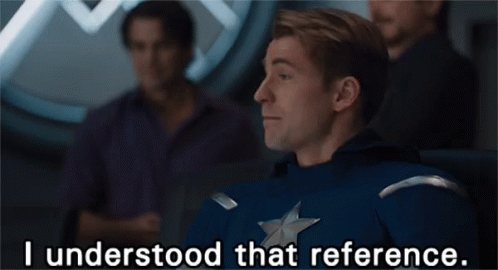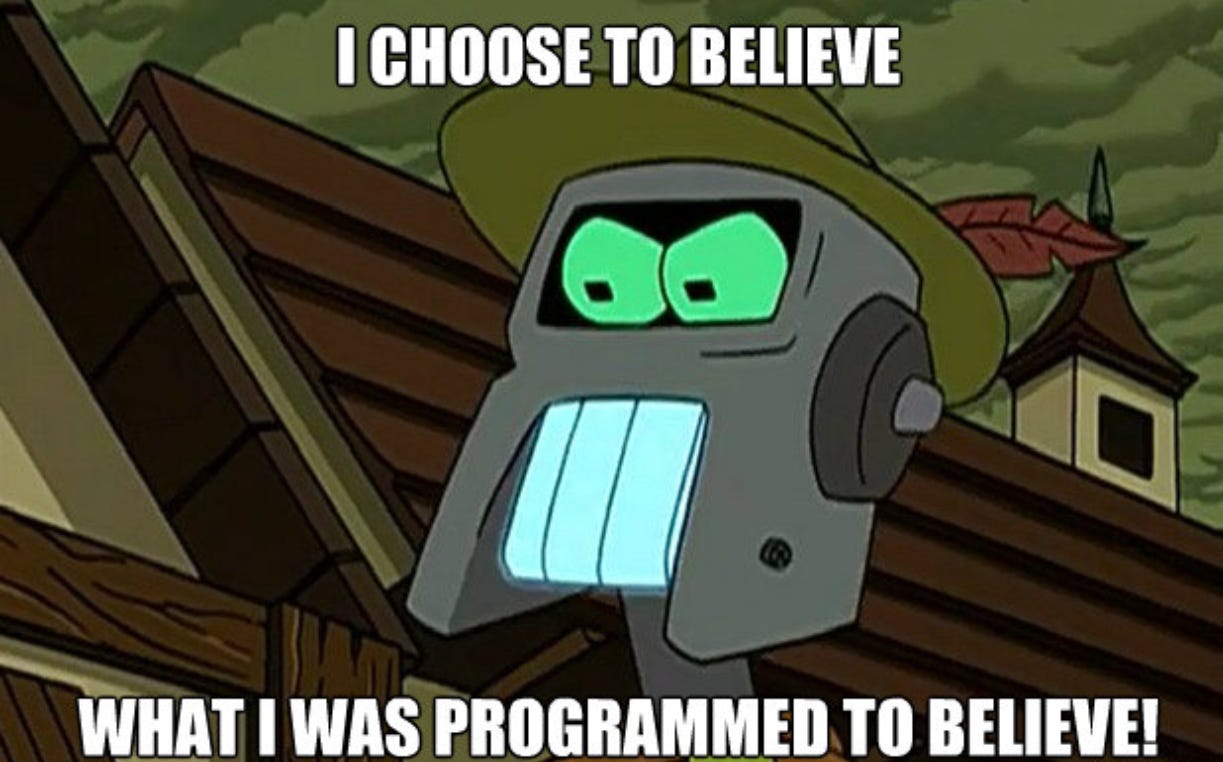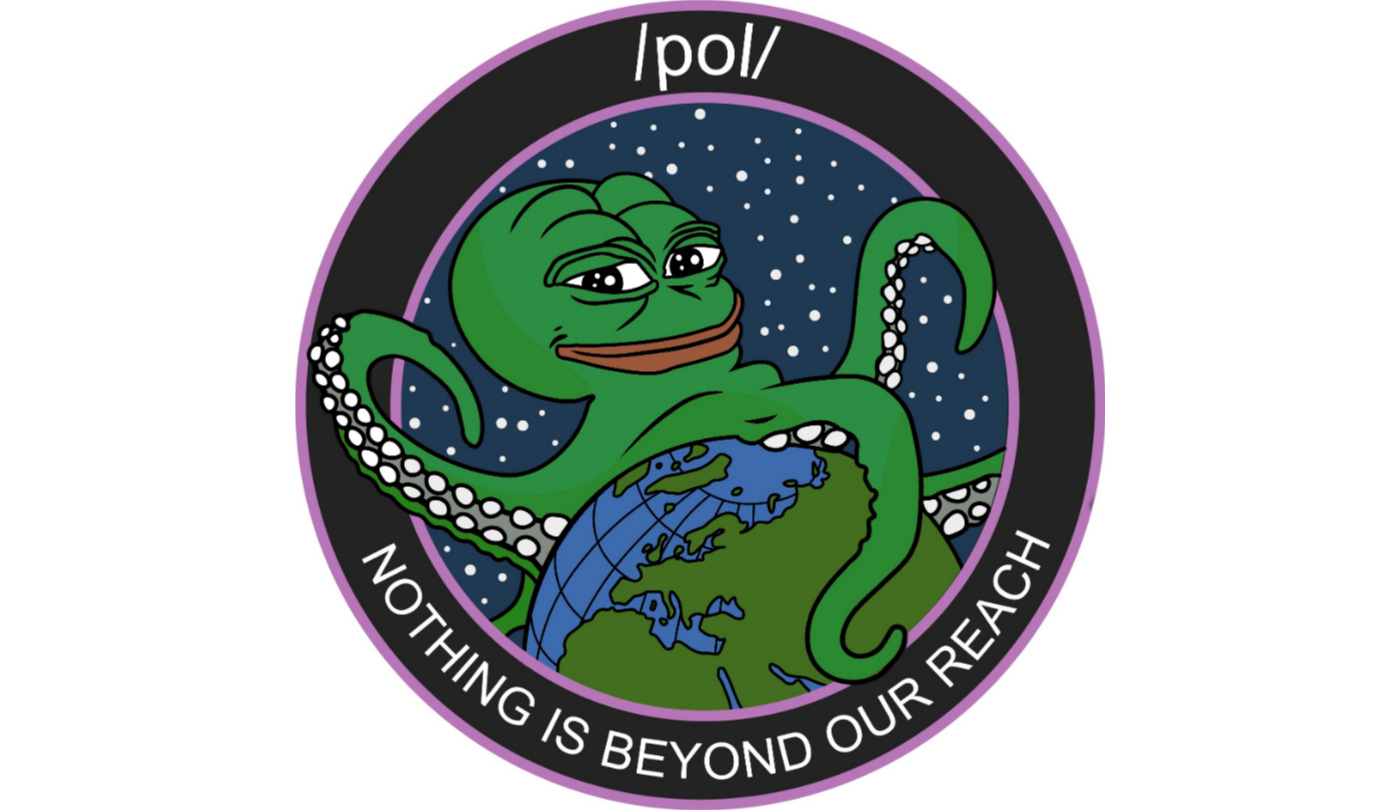The NPC meme is here to stay. It has become so powerful and pervasive that those who control the narrative and their indoctrinated followers will never be able to fully dislodge it from mainstream consciousness. But few understand the reason behind such a decisive win in the culture war. Was it the anon’s sheer force of will that drove the idea into the zeitgeist or were there other factors to the NPC meme’s success?
We know that the best memes satirize the ridiculous with truth, and the NPC meme could not be a more accurate representation of the absurd state of reality: talking heads and their followers all parroting the same talking points with machine-like consistency and complete lack of self awareness. But even many of the anons who wield the NPC meme with lethal efficiency do not fully grasp the fundamental truth the NPC meme represents.
THE POWER OF MEMES
EVOLVED COMMUNICATION
While many normies might think of memes as funny internet oddities, more profoundly, memes are the next step in the evolution of how we convey ideas. The internet necessitates the quick and clear communication of information limited by the digital medium. Written language and visual imagery have always been powerful, but combined together, they are even more effective at conveying the intended message. What distinguishes the meme and takes it to the next level is the incorporation of the cultural analogy.
Communication relies upon shared knowledge; knowledge of language and vocabulary, but also knowledge of ideas and experiences. Since the internet shares a collective culture, we can use shared cultural experience by way of analogy to contextualize new ideas in the form of memes.
Video Game knowledge is pervasive throughout internet culture. It is rare anyone using the internet has not had or seen a frustrating experience with NPCs: dumb, computer controlled characters who seem to constantly make the same short sighted moves and never learn from their mistakes. As such, the concept of the NPC itself has immediate, clear, and universal meaning, fertile ground to create a powerful meme.
TRUTH BASED MESSAGE
The second, crucial part to a successful meme is the message itself. A meme creator might have used language, visuals, and the cultural analogy to great result, but if the message is hollow, aesthetics alone will not be enough to make the meme go viral. The best memes use its message to satirize and reveal absurd truth. It forces us to view something in a new and unique way, inspiring greater insight and understanding. It is that flash of insight which comes from effective communication of a nuanced and interesting idea that will elicit the most powerful dopamine response and achieve virility.
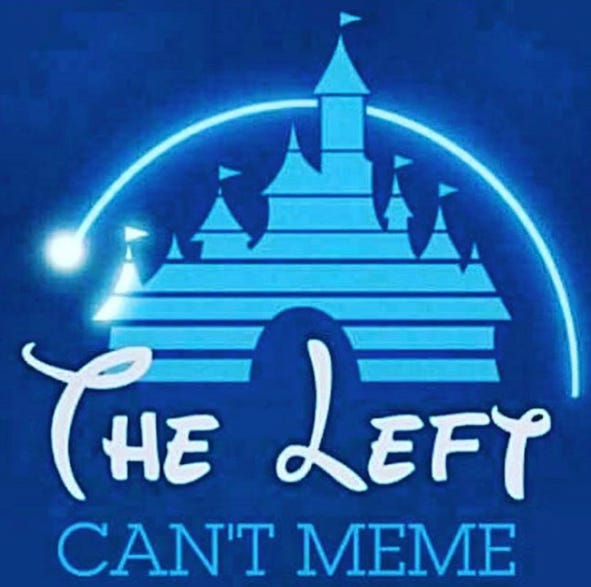
This is also why the left cannot meme. The messages they embed in their memes are not grounded in any truth and therefore, no matter how artistically done, will fail to produce the insight and reaction a good meme must.
The NPC meme message checks the box. The pink haired progressives who consume main stream media and parrot their talking points might as well be poorly coded NPCs, beholden to their ideology regardless of whether their actions are actually good for them, let alone logical. But even this portrayal of the social media mobs as NPCs has deeper roots in truth than at first glance.
THE DEEPER PHILOSOPHY OF THE NPC MEME
Video games are appealing because they are effectively an artificial way to fulfill our human desire to solve problems, learn, and grow. As such, it is not surprising that games serve as a distilled representation of the world around us. Great minds, bent on greater understanding, have already created philosophies of the natural world which includes what we understand as the NPC phenomenon. To explore how deep the truth of the NPC meme goes, we will draw on the insights of Nietzsche and Jung to see this is not just a convenient analogy, but a reflection of human nature.
THE HERD
In his work Beyond Good and Evil, the German philosopher Fredrick Nietzsche describes the human phenomenon the NPC meme represents as “The Herd”, a collection of common people who are governed by an unquestioned and “anti-natural” morality. Nietzsche explained that these people are often weak and resentful of society, accepting The Herd Morality in order to become part of the group and derive a superficial sense of power and meaning. Members of The Herd despise those who would aspire to something outside their morality and will actively seek to destroy anything in contradiction to their beliefs.
THE GREAT MAN
Nietzsche goes on to talk about The Herd’s foil, The Great Man, who is perfectly analogized in The Player Character. The Great Man follows his own morality and answers a high calling. He cares not for the opinions of The Herd, but pioneers his own path as his understanding of God and Nature dictates.
If you are interested to learn more about Nietzsche’s thoughts on The Herd and Great Men, I highly recommend Academy of Ideas’ video Nietzsche and Morality: The Higher Man and The Herd. This video was instrumental to developing my own understanding and is well worth watching.
DEFINED BY AGENCY
What most separates The Great Man from The Herd or The Player from The NPC is agency. Those in The Herd accept without thought both the herd morality and their place in it. Just as the NPC is governed by its code, members follow the dictates of The Herd morality and will never stray from, let alone question the validity of, their beliefs. The Great Man, like The Player, exercises his agency to follow his own path and higher calling. He recognizes the greatness within him and the responsibility to answer that call to build a better future, not simply for himself, but for humanity and all great men who will come after him.
IDEAS AS CODE
Since we have already established that members of The Herd adopt and follow their shared morality with little conscious reflection, it is only a small step in understanding that leads us to Swiss Psychologist Carl Jung’s insight that “People don’t have ideas, ideas have people.” As ideas rise and fall in mainstream society, so too does the herd adopt and discard whatever ideas make up the current iteration of The Herd Morality. Here we can expand our video game analogy to represent ideas as code. The collection of ideas that make up the morality of the herd can be understood as the codebase of the NPC.
With the proper massaging, those who control the string of culture can implant new ideas in the codebase and reprogram NPCs to follow a new mortality. This is why memes are the tools by which anons fight the culture war. A meme carries an idea, like a virus carries DNA. The better the meme is built and the stronger the message, the more viral the idea and the more anons can rewrite a more human and positive NPC codebase.
This concept of idea possession is why, when you get into an argument with a living NPC, you feel like you are not talking to a person, but a collection of all the talking points taken verbatim from the mainstream media. These ideas were never theirs to begin with, but instead downloaded into their codebase through their adherence to the herd morality. In this way, the NPC analogy is not just satire, but shockingly accurate.
CODE AS TOOLS
To a Player Character, adopting an idea can still be understood as incorporating new code, but the difference is code adoption by a Player is done so consciously. Much like choosing the right tool for the job, Players can pick up an idea, discuss its merits, and discard it, if need be, for a more powerful or effective idea. There is no shame in using a bad tool, only shame in the refusal to adopt a better one when the option is presented. In this way, Players are constantly leveling up and evolving; finding stronger and more effective ideas and building a more robust and powerful codebase.
CONCLUSION
Through this discussion of the NPC meme, we have had the chance to better understand the structure of memes: The importance of the cultural analogy and an insightfully true message. We were also able to explore the deeper truth behind the NPC meme itself. Nietzsche’s idea of The Herd and its possession of the mediocre man through a collective morality. Jung’s concept of idea possession, easily understood through the analogy of NPCs governed by their code. We can see how video game analogies seem to aptly fit this traditional understanding of human nature.
In future writings, I plan to expand this analogy further and go deeper into what I call The Meta Story. By expanding this framework, I hope to give anons both the understanding and language to talk more about these ideas and how we can leverage them to build a better human future.
TAKEAWAYS
The Meme is an evolved form of communication that leverages culture analogies to better convey nuanced ideas.
Viral memes often reveal and touch on a deeper truth, usually in a satirical way.
The NPC Meme is powerful because it reflects the deeper truth of human nature which Nietzsche described as The Herd.
The Herd is governed by its morality much like NPCs are governed by their code.
We can expand the video game analogy to think of ideas as code, memes as viruses, and great men as player characters.
This framework empowers us to see the game being played and the language to talk about it.




